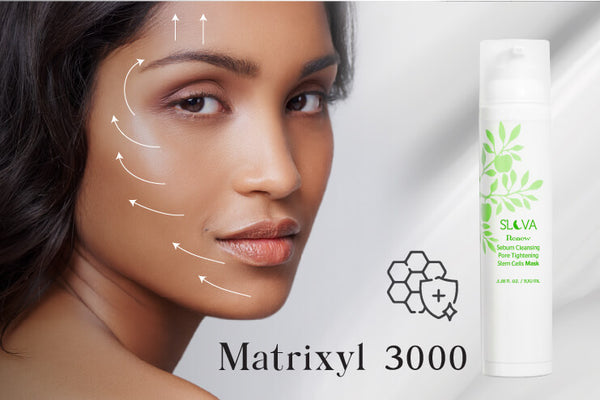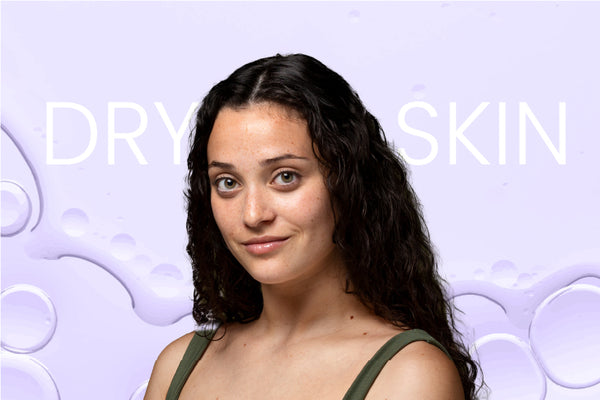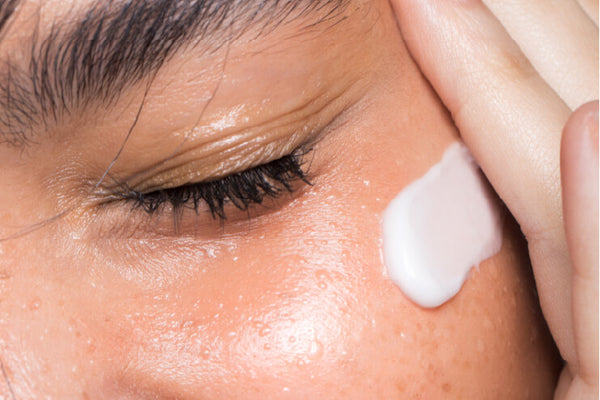Note: "Add 2 products to avail Buy 1 Get 1.
Not Applicable on Combo products."
What Are Peptides? Why They Are So Good & How To Use Them In Your Skincare Routine

If you’re a skincare junkie, you might certainly have heard about peptides. While collagen is a long-standing staple of anti-aging skincare products, the peptide is the new buzzword enticing the skincare market. Peptides are not like other buzzy ingredients that turned out to be fallacies! both research & dermats verify its efficacy. If you’ve already added peptides to your routine, we just have one word for you - Wonderful! Let’s see how well your peptide face cream or serum works.
What Are Peptides by Definition?
Before knowing peptides, it’s important to understand what amino acids are. Amino acids are the organic compounds that form proteins. When proteins break down amino acids are left!
Structurally, peptides are building blocks of proteins. When a chain of amino acids links together, they form a peptide bond and coupling two or more peptide bonds form a protein. The most buzzed skin protein, collagen is formed like this.
Without these proteins, we will see wrinkles, dry hair, brittle nails. Not only collagen, but peptides are also building blocks for elastin fibers too, which ensure firmness & elasticity of the skin. Apart from being vital in tissue and skin structure, peptides act as organic messengers in the body and are crucial for regular body activities like the production of hormones, enzymes & energy.
What Do Peptides Do & What Are They Good For?

Researchers are more interested in bioactive peptides that have a beneficial effect on day-to-day body functions. Different bioactive peptides deliver different benefits; these effects are based on the sequence of amino acid chains they contain.
Popular peptide supplements that we know are:
Collagen peptides, which benefit skin, hair, and nails and are also proven to be effective in delaying intrinsic aging.
Creatine peptides, which build muscle mass & aids in boosting overall body strength. Also, some people take these peptide supplements to enhance athletic activity.
Research shows that bioactive peptides may deliver these benefits
- Control high blood pressure
- kill microbes
- reduce inflammation
- prevent the formation of blood clots
- improve immune function
- act as antioxidants
All About Natural Peptides & The Best Peptides in Skincare
If you are seeing early signs of aging like wrinkles around the eyes, forehead, or dark spots on your face, then you’re not alone. The natural way to delay these premature-aging signs is by increasing collagen production. This is where peptides in skincare come into play. Applying peptides topically will send a message to the skin cells for boosting the production of collagen naturally within your skin. Peptide molecules are smaller in size and can effectively penetrate skin & send a signal for the production of collagen. While there are hundreds of peptides, there are certain peptides that are more efficacious to the skin than others.
Carrier Peptides: These peptides deliver trace elements like copper, magnesium to the skin cells to boost collagen production.
Signal Peptides: These peptides signal the skin cells to develop the production of collagen, elastin & other compounds.
Neurotransmitter peptides: Popularly known as Botox-like peptides, neurotransmitter peptides obstruct the production of chemicals that result in muscle contraction, which form fine lines & wrinkles.
Enzyme inhibitor peptides: These peptides slow down the natural breakdown of collagen within the skin.
Benefits of Peptides for Skin

Peptides, when used in skincare products, work towards improving overall skin health by boosting the production of collagen & elastin fibers. Below are some benefits of peptides for the skin.
Boosts collagen production: As discussed earlier, post the age of twentysomethings, collagen starts to break, resulting in under-eye wrinkles & discoloration. Using peptides in skincare signals skin cells to produce collagen to replace the lost ones. This helps in reviving the youthful glow & reducing the signs of aging.
Reduces the appearance of wrinkles & fine lines: Peptides stimulate collagen production thus giving your skin a plump look and protecting youthful appearance.
Protects skin barrier: Signal peptides help amp up your skin cells & also function towards strengthening the skin barrier.
Locks in hydration: Wrinkles & fine lines are naturally caused by lack of moisture. When peptides boost the production of collagen, this helps lock down the moisture thus promising a naturally hydrated & fresh look.
Makes skin more firm: Peptides inhibit nerve signals to produce elastin and collagen to soften fine lines & wrinkles.
Repairs damaged skin: Carrier peptides transmit vital elements that aid in healing the skin matrix and restoring proper cell communication.
Are Peptides Safe? Know The Their Possible Side Effects, if any
Like Retinol or antioxidants, there is no sufficient research to prove that peptides have side effects. Dermats vouch for the safety of peptides. However, all-natural peptides are safe & powerful, and aid in delaying aging. There are peptides like ipamorelin that show some adverse effects when taken without doctor supervision.
How To Use Peptides?
Skincare with peptides is not an overnight success story. It takes time & work to get the most out of this novel ingredient. Peptides work best in the form of creams & serums. If you’re adding peptides to your routine, you’ll need to wait for at least 12-weeks to notice the change. The frequency of usage will depend on the type of product and your skin type. In general, it is safe to use peptide creams or serums twice a day.


